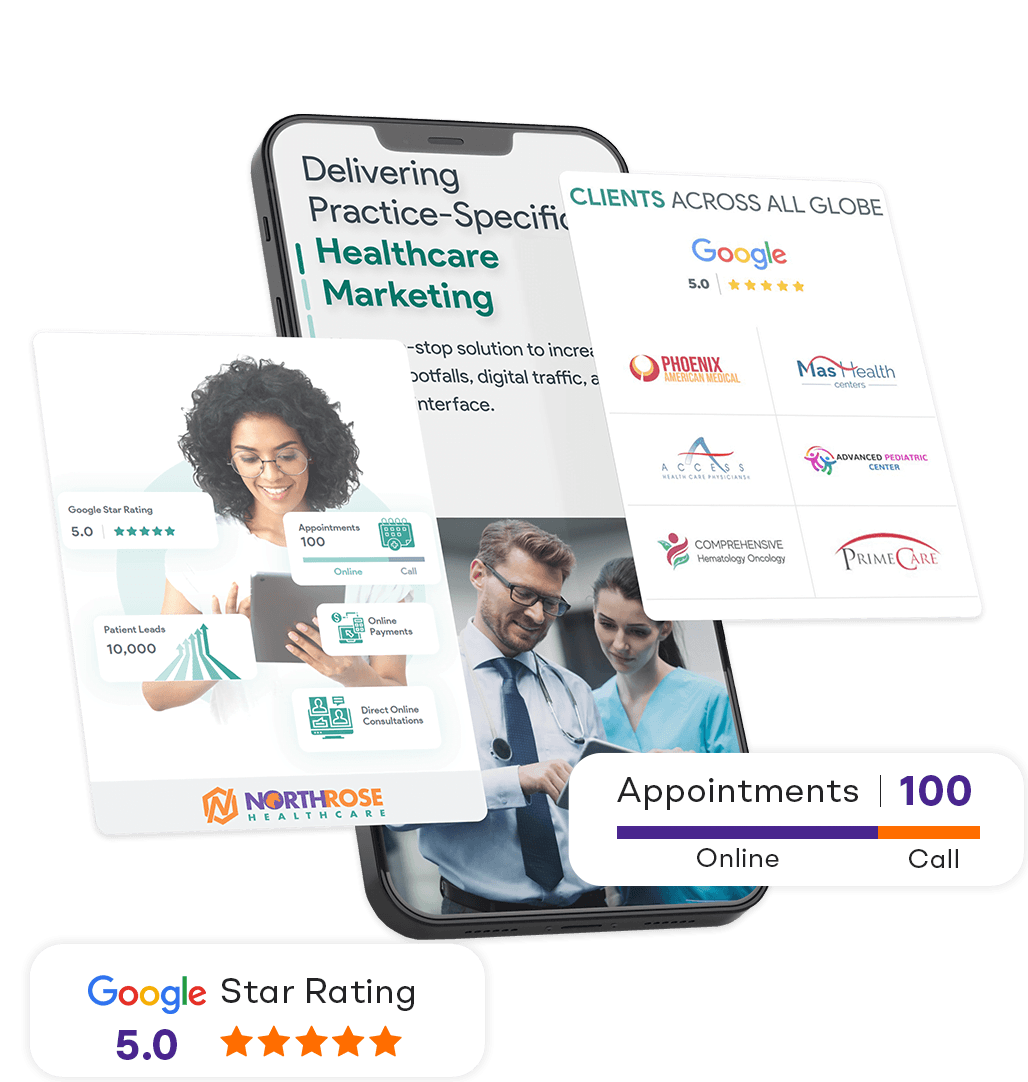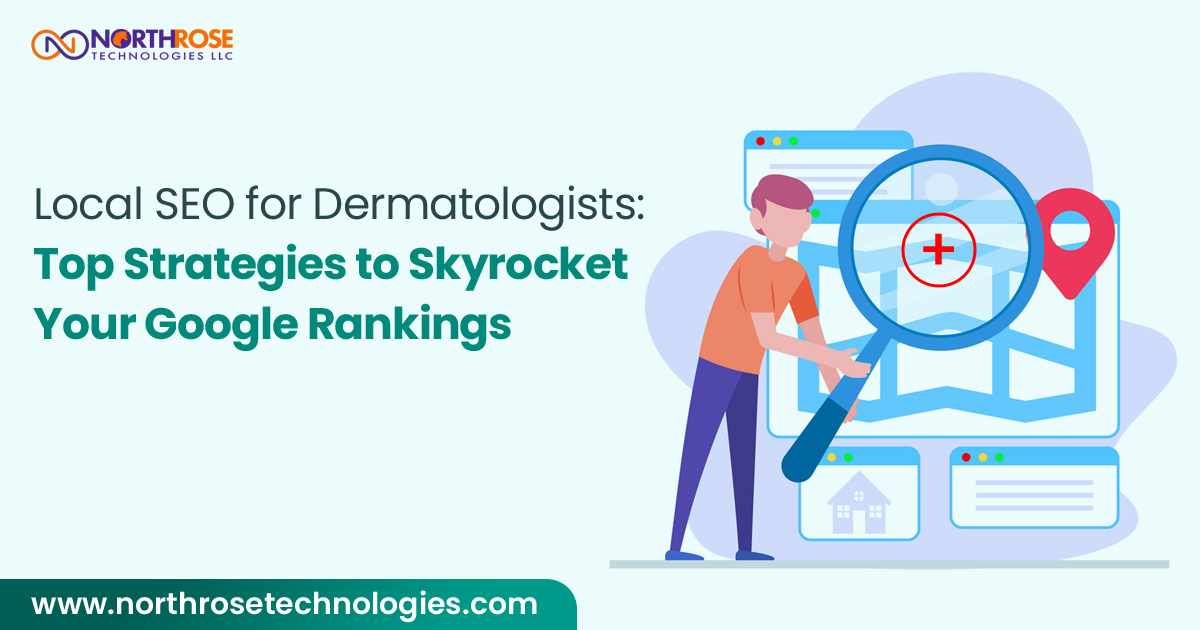
Ensuring your medical practice stands out is no longer optional — it’s a necessity. Patients today turn to search engines for everything from finding the best dentist nearby to understanding complex medical conditions.
This shift makes Healthcare SEO not just a luxury but a norm for medical practices looking to thrive.
Understanding Healthcare SEO
Healthcare SEO is the art and science of optimizing your medical practice’s online presence to rank higher in search engine results pages (SERPs).
Unlike general SEO, Healthcare SEO is tailored to address the unique challenges and opportunities in the medical field.
It involves targeting location-specific keywords, and patient-centric content, and ensuring compliance with healthcare regulations such as HIPAA.
At its core, Healthcare SEO focuses on:
On-page optimization — Enhancing website content, structure, and metadata.
Off-page optimization — Building quality backlinks and fostering online trust.
Technical SEO — Ensuring a seamless user experience through mobile optimization, fast loading times, and secure connections.
What is the Importance of Online Visibility for Medical Practices?
Online visibility can make or break your medical practice. In an age where patients trust search engines more than traditional referrals, being visible online is extremely important.
Here’s why:
Patient Acquisition: Most patients prefer providers they find online, especially if they read positive reviews.
Trust and Credibility: A high-ranking website signals authority, reliability, and professionalism.
Accessibility: Your practice becomes accessible 24/7, allowing patients to book appointments even after hours.
Competitive Edge: Strong online visibility helps you stay ahead of competitors who may not prioritize SEO.
Key SEO Strategies for Healthcare Providers
Healthcare providers need a mix of foundational and advanced SEO strategies to thrive. These include:
Comprehensive Keyword Research:
Keyword research is the cornerstone of any successful SEO strategy. In healthcare, understanding the language and intent behind patient searches is critical. Identify the phrases potential patients use, such as “best cardiologist near me” or “affordable dental care in Texas.”
Content Marketing:
High-quality, informative, and engaging content positions your practice as an authority in the healthcare field. Create blogs, FAQs, and guides addressing common patient concerns. This not only boosts SEO but also builds trust and educates patients, encouraging them to choose your practice.
Mobile Optimization:
With the majority of searches occurring on mobile devices, a mobile-friendly website is non-negotiable. A seamless mobile experience ensures visitors stay engaged and convert into patients.
Local SEO:
Local SEO ensures your practice is visible to patients searching for healthcare providers in your geographical area. This involves claiming your Google My Business listing, using location-specific keywords, and encouraging positive reviews.
Optimize On-Page SEO Elements:
On-page SEO involves optimizing the elements of your website to make it search-engine friendly. This includes meta title and description tags, optimizing header tags, and interlinking. Proper on-page SEO ensures your website is easy to navigate and relevant to patient searches, improving both user experience and rankings.
Data-Driven Insights to Optimize SEO:
Monitoring and analyzing your performance is vital to refining your SEO strategy. With continuous optimization, your SEO strategy will remain effective and aligned with patient needs.
Optimizing Your Website for Search Engines
Your website is the foundation of your digital presence. To optimize it effectively:
Use Descriptive Metadata
Improve Page Speed
Implement Schema Markup
Enhance Navigation
What is The Role of Keywords in Healthcare SEO?
Keywords are the bridge between what patients search for and the services you provide. To use them effectively:
Target Long-Tail Keywords: These are more specific and less competitive, e.g., “ENT specialist in Dallas.”
Natural Integration: Avoid keyword stuffing; instead, weave keywords naturally into your content.
Leverage Tools: Platforms like SEMrush or Ahrefs can help identify high-performing keywords.
Keywords should reflect patient intent, addressing both informational queries and action-based searches.
Leveraging Google My Business for Increased Visibility
Google My Business (GMB) is a powerful tool for healthcare SEO.
To maximize its potential:
Complete Your Profile: Add your business name, services, operating hours, and high-quality photos.
Encourage Reviews: Positive reviews boost your rankings and attract more patients.
Post Updates: Share announcements, events, or promotions to keep your profile active.
Track Insights: Use GMB analytics to monitor views, clicks, and other key metrics.
An optimized GMB profile ensures you appear in local searches and Google Maps, increasing patient acquisition.
Building Trust and Authority through Online Reviews
Online reviews are modern-day word-of-mouth recommendations. They influence patient decisions and impact your search rankings.
Encourage Happy Patients: Politely request satisfied patients to leave reviews.
Respond to Reviews: Thank reviewers and address concerns professionally to show you care about patient feedback.
Monitor Your Reputation: Use tools like Reputation.com to track and manage your online reviews.
Positive reviews not only improve visibility but also build trust, making patients more likely to choose your practice.
Staying Compliant with Healthcare Regulations in SEO
Healthcare providers must navigate SEO within the boundaries of strict regulations:
HIPAA Compliance: Ensure patient information is secure and not misused in marketing efforts.
Accurate Information: Avoid making exaggerated claims about treatments or services.
Consent for Cookies: Comply with privacy laws like GDPR by seeking user consent for data tracking.
Compliance not only protects your practice from legal issues but also builds patient trust and confidence.
Conclusion
Boosting your medical practice’s visibility with expert Healthcare SEO is a journey, not a destination. By implementing the strategies discussed — ranging from local SEO and keyword optimization to leveraging online reviews and mobile optimization — you can ensure your practice ranks high in search results and remains the top choice for patients.
Partnering with a professional Healthcare SEO agency like North Rose Technologies can take your efforts to the next level.
Ready to elevate your practice? Embrace the power of Healthcare SEO today and watch your visibility soar!
Frequently Asked Questions
What is Healthcare SEO?
Healthcare SEO is the practice of optimizing a medical practice’s online presence to improve its visibility in search engine results.
Why is Healthcare SEO important for medical practices?
Healthcare SEO helps medical practices reach potential patients searching for medical services online and improve practice credibility through higher rankings and positive reviews.
How long does it take to see results from Healthcare SEO efforts?
SEO is a long-term strategy, and results typically become noticeable within 3–6 months. Competition, the current state of your website, and the effectiveness of your strategy can influence the timeline.
What is Local SEO?
Local SEO focuses on improving visibility in local search results. For medical practices, this means appearing in searches like “cardiologist near me” or “dental clinic in Dallas.”







.png)
Write a comment ...